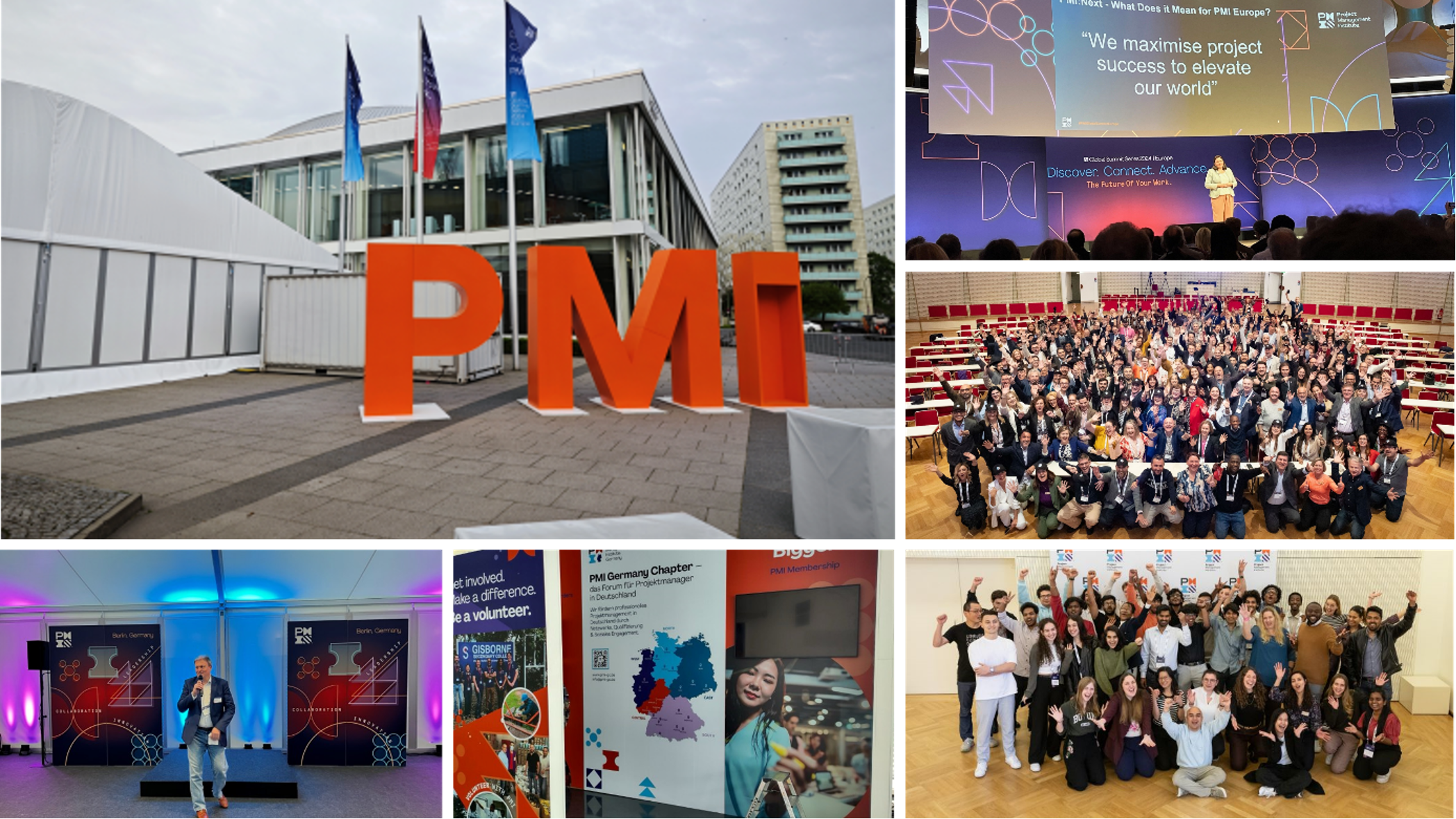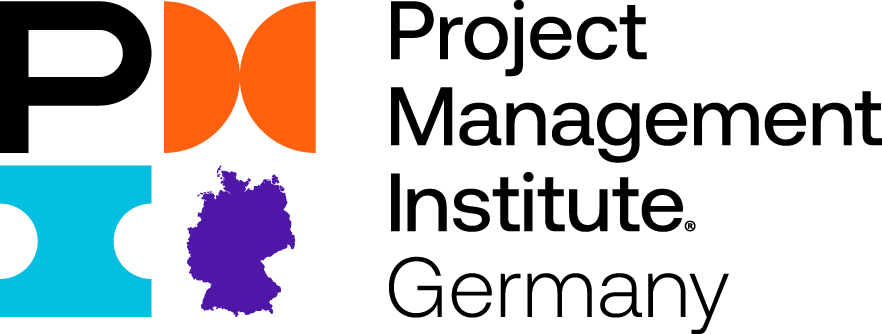It started on April 8, 2024 with a student hackathon, where more than 30 students from different faculties and cultures from 11 German universities were connected with project management. It was the first PMI live hackathon. Participants were able to gain theoretical and practical experience in project management. The day started with an introduction to project management and the presentation of the task: the creation of a project charter for a self-chosen idea on the topic of circular economy that could be realized in Berlin. After intensive group work, the teams presented their project ideas to a three-member jury. The three best teams were awarded prizes, as was the team with the most innovative project idea.

On April 10 and 11, the PMI Global Summit took place, a congress for further training and networking for practitioners and managers in the field of project management. With over 800 participants, the congress was fully booked. Various project management topics were highlighted in keynotes and several workstreams.
The main topics of the PMI Global Summit were:
- Examining the impact of the use of artificial intelligence on the management of projects.
- The importance of program and portfolio management and PMOs in corporate transformations.
- The changing demands on leadership, e.g. in relation to younger generations.
In addition to the main topics, there were a large number of workshops with opportunities for further training in specific areas of project management.
The congress was accompanied by an exhibition at which providers of various products and services in the field of project, program and portfolio management were able to present their offerings.
The final event on April 12 and 13 was the LIM (Leadership Institute Meeting), where over 200 members of the executive boards and other management levels from all European chapters came together to share best practices in chapter leadership and adopt innovations.
The LIM is something like a larger "family reunion" of volunteers from PMI chapters. Chapter executives meet to exchange ideas and to take up ideas and then incorporate them into their own chapter work. Due to the voluntary nature of the work, there is relatively high volatility at the events in terms of participants. As a rule, around 50% of participants are attending for the first time.
PMI : Next - We maximize project success to elevate our world
All events were characterized by the recently published strategy PMI : Next
The purpose of PMI as formulated in PMI : Next, the reason for its existence, is as follows: We maximize project success to elevate our world.
This sentence was ultimately the guiding principle of all events.
The Student Hackathon provided the participating students with insights into the importance of projects and basic knowledge and skills in project management, knowledge that will be of considerable relevance to them in the future.
The PMI Global Summit showed what PMI : Next means for the outside world, for companies, for people involved in projects in general and, of course, for project managers in particular.
At the LIM, the focus was on what the PMI chapters can do to implement the strategy.
Key-Take-Aways – Professional project management is and remains important!
Artificial intelligence is here and will change project management in the long term; we are only at the beginning and will still be able to experience and learn a lot about it. AI will increasingly be used to support planning and monitoring tasks as well as the preparation of decisions. Overall, AI will help to increase efficiency in project management by largely automating routine tasks, enabling well-founded decisions and giving project managers the freedom to focus on the essentials of their work: Leading teams to achieve project results and, mastering challenges that arise along the way.
The use of artificial intelligence in project management will be accompanied by a shift in the skills required of project managers. The importance of soft skills for the successful management of projects has been repeatedly emphasized in the past. The shift in requirements towards what PMI refers to as power skills will continue to increase. Skills in the areas of communication, solution finding, conflict resolution, team leadership and strategy are becoming increasingly important.
Project Management Offices (PMOs) are often not very popular. Partly too bureaucratic, poor collaboration and communication, unclear benefits are just some of the keywords that are mentioned as causes. To make PMOs more successful and popular, it is important to address these challenges and ensure that the PMO makes a clear and recognizable value contribution to the organization. In a world where an ever-increasing proportion of economic value is created through projects, good PMOs are necessary. The congress offered some examples of how good PMOs can be designed, especially in the direction of strategic portfolio management, but also made it clear that there is no "one fits all approach" for PMOs. Every organization has to work this out for itself.
Overall, the events were very instructive and informative. As the weather in Berlin was also excellent, it was simply fantastic overall.



